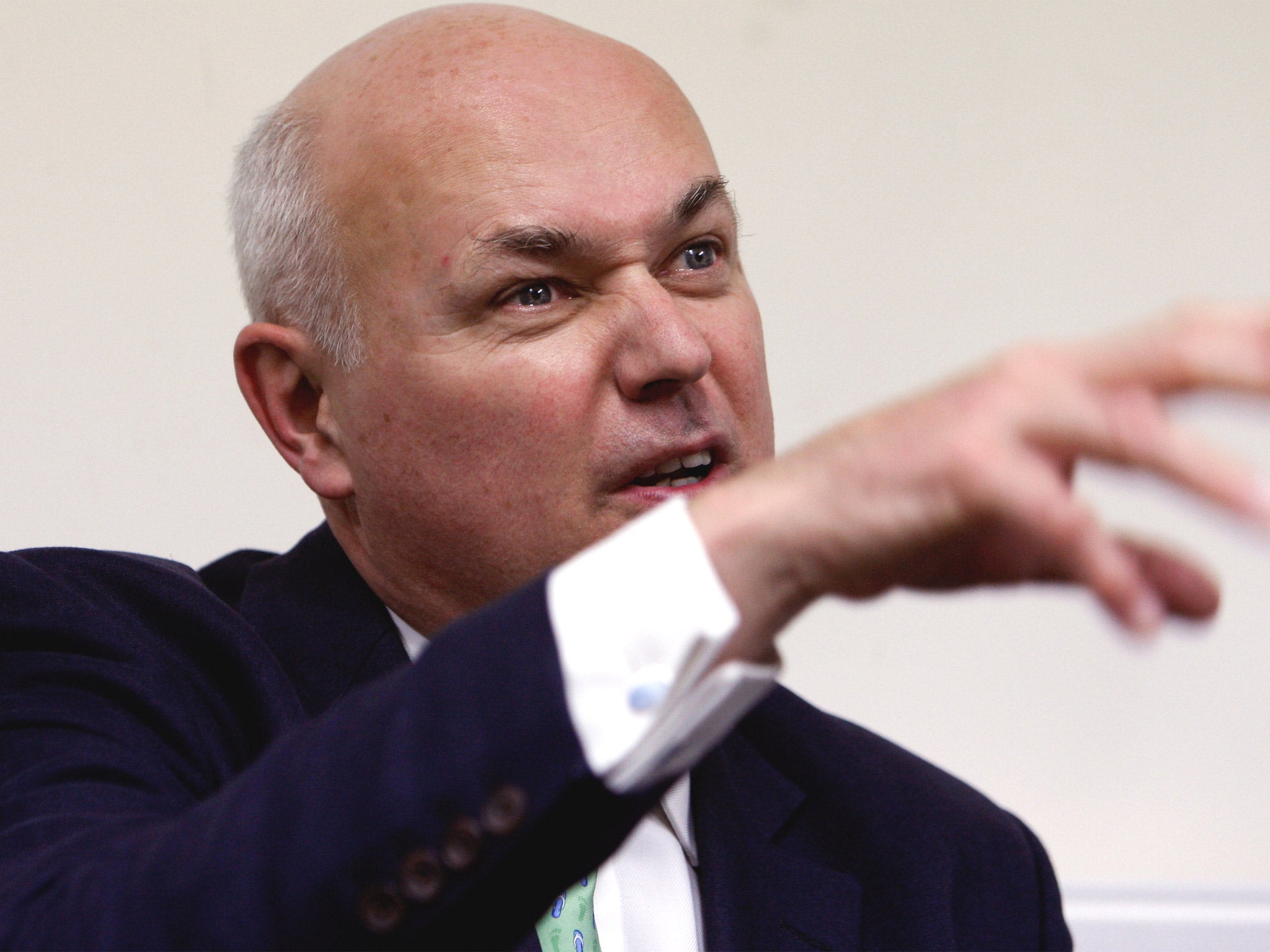IDS: 'Conservatives are winning the argument on welfare'

The Conservatives are winning the argument against Labour on welfare because the debate is no longer about how much money is spent, Iain Duncan Smith will claim today.
The Work and Pensions Secretary will argue that the key debate is now over the difference welfare spending makes to people’s lives rather than the size of the budget. He will outline his personal mission, over which he has clashed with George Osborne, the Chancellor. He will say that welfare reform should be about “social renewal - part of a Conservative vision of strong families”.
Mr Duncan Smith is opposing the Chancellor’s plan for £12bn of further cuts in the two years after next year’s general election. He is also unhappy about what he regards as divisive Tory rhetoric which portrays benefit claimants as “shirkers, not strivers.”
In a speech marking the tenth anniversary of the Centre for Social Justice, the think tank he founded, Mr Duncan Smith will claim he is reforming the “broken welfare system” left by Labour. “We would have wanted to reform the welfare state, even if we had no deficit. As Conservatives, we should hate the idea of people with unfulfilled potential languishing on welfare. Welfare reform is fundamentally about opportunity and life change,” he will say.
“We are cutting the cost of social failure by transforming the life chances and outcomes of those on benefits. Restoring fiscal stability, and restoring lives at the same time,” he will say. "Our real success has been to reframe the argument – challenging a narrative beloved of the Left, which focuses so exclusively on how much is being spent on welfare that it risks overlooking the real question... that it is not about how much goes into the benefit system, but what difference it makes to people at the other end.”
In another veiled warning to fellow Conservatives, the Work and Pensions Secretary will argue that Britain will only be great again if everyone is part of the economic recovery and growth, which underpinned by social change. "In other words, reform that is not just about state institutions, but about social renewal – part of a Conservative vision of strong families with hope for their children’s future but who also care about their communities,” he will say.
Praising the Chancellor’s plan for an inflation-plus rise in the national minimum wage, Mr Duncan Smith will argue: “A stable economic settlement requires a strong social settlement. You cannot reform one without the other, and thus welfare reform is one very important part of a larger, long-term economic plan.”
Mr Duncan Smith, who has clashed with the BBC over its portrayal of reforms such as the “bedroom tax,” will round on his critics, accusing them of misrepresenting his changes. He insists on describing the tax as the removal of the “spare room subsidy” in public housing.
"The task that we have set out to achieve is hardly a small undertaking. And it is not easy, as those arrayed against us do all they can to misrepresent what we are doing; angling for a return to the failed and expensive policies of the past, when success was measured by the amount of money you spent, not the lives you improved,” he will say.
"The purpose for government is not grand but simple. It is that through our economic and welfare changes we will have helped people feel that bit more secure about their futures, feel more hopeful about their children’s lives and rekindle their pride in their communities, as their neighbours also begin to thrive."
Mr Duncan Smith’s speech comes three days after his Labour opposite number Rachel Reeves set out a tougher approach to welfare in her first major policy statement since taking on the brief.
The shadow Work and Pensions Secretary, who is trying to rebut Tory attacks that Labour is “the welfare party”, announced that jobless people who fail a basic skills test and refuse training, would lose their Jobseeker’s Allowance.
She matched the Tories by backing tough curbs on when EU migrants to Britain should qualify for benefits. But she is opposing Tory plans to reduce housing benefit for under-25s and rejects proposals to means-test JSA for young people so it takes account of their parents’ income.
Subscribe to Independent Premium to bookmark this article
Want to bookmark your favourite articles and stories to read or reference later? Start your Independent Premium subscription today.

Join our commenting forum
Join thought-provoking conversations, follow other Independent readers and see their replies